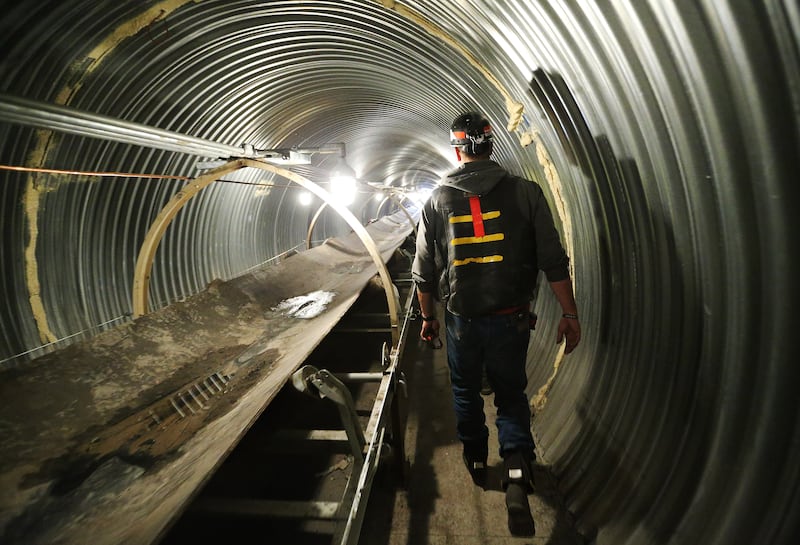Saying they are fed up and frustrated, Republican lawmakers are increasingly targeting what they say is a laborious, cumbersome and costly federal permitting process that drains industry and taxpayers of millions and leaves the U.S. at a global disadvantage when it comes to vital minerals and other natural resources.
To that end, Utah Rep. Celeste Maloy introduced on Tuesday the Full Responsibility and Expedited Enforcement (FREE) Act.
This is a federal permitting reform bill she says will streamline and simplify the permitting process. The bill has backing from former Interior Secretary David Bernhardt, industry leaders in Utah, and a growing number of bipartisan co-sponsors.
“Utahns have to go through federal permitting for nearly everything we do. Permits to mine on public land can take decades to approve. Even permits to clean up trash take weeks. The FREE Act will streamline the process, saving Utahns time and money,” Maloy said.
The act directs federal agencies to evaluate their permits and report to Congress within 240 days with an assessment of whether a permit by rule can replace their current systems or make a thorough justification as to why not. Agencies must then adopt the rule within 12 months for the eligible permits.
After institution of the permit by rule, agencies must grant all permit applications that meet objective permit standards within 30 days. Agencies can still deny applicants that do not meet requirements and may verify compliance.
This is a huge departure from what typically takes place, with a permitting process that drags on years if not decades for projects that include mines, transmission lines, extraction of oil and gas, and transportation corridors.
“The federal government’s byzantine and burdensome permitting processes are a major obstacle to responsibly developing Utah’s vast mineral wealth and reducing dependence on hostile foreign nations for minerals critical to our economic and national security,” said Brian Somers, president of the Utah Mining Association.
“Congresswoman Maloy’s FREE Act would greatly reduce mine permitting timelines to bring the U.S. in line with other advanced mining jurisdictions like Canada and Australia. The FREE Act would also provide predictability to the mining industry so it can continue to attract investment and bring sorely needed mining projects online,” he added.
Maloy, who represents Utah’s 2nd Congressional District, pointed to a S&P Global news article that found the average wait time for permit applications to mine on federal land in the United States is 18 years, compared to two to three years in countries like Australia and Canada. The FREE Act would help reduce those delays.
“Congresswoman Maloy’s permit-by-rule proposal would bring the government’s out of date permitting approval process into the 21st century. This efficient approach has already been adopted and practiced in nearly 40 states,” said James Sherk, director for the Center for American Freedom at America First Policy Institute. “Modernizing this critical practice across the federal government is a step in the right direction and would make it easier for small businesses to create more jobs.”
Maloy’s office pointed to examples of where the permit by rule is already being used, such as by the Environmental Protection Agency for activities such as ocean disposal of hazardous waste and injection wells. Ohio uses the rule for lower risk and common projects like auto body shops and gas stations, while Texas applies the rule to larger projects such as combined heat and power systems for industrial projects.
Maloy’s office said the measure would not kneecap agency discretion. It allows for audits of applications and enforcement of compliance with substantive standards, including denying or halting permits if standards are not met.
Environmental groups have argued that projects deserve a thorough review for potential ramifications to critical landscapes, air quality, consumptive water use, and other considerations that require thoughtful public input and community outreach. Attempts to rush a project through absent careful examination can result in devastating impacts to natural resources and often run counter to community sentiments, they argue.
Maloy’s bill has 13 co-sponsors that include fellow Utah GOP Reps. John Curtis and Blake Moore.


